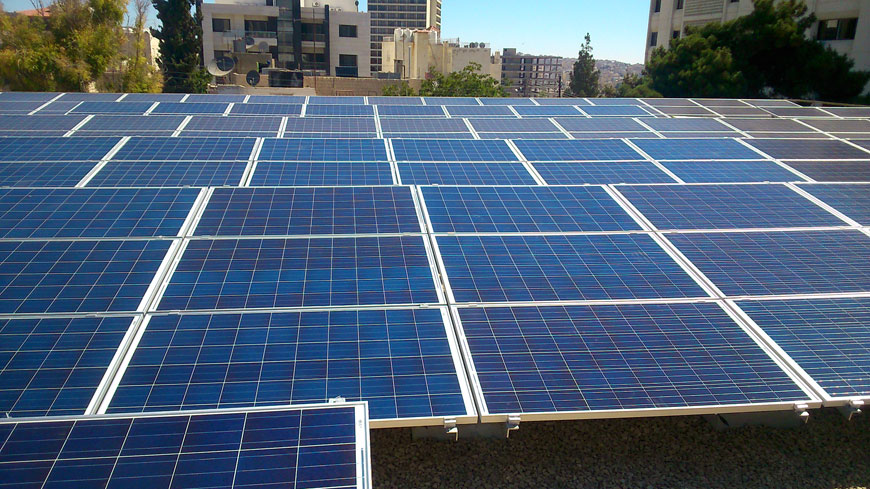AMMAN — The Ministry of Water and Irrigation headquarters in Shmeisani will start running on solar energy within two months to reduce its electricity bill by 40 per cent, a government official said on Tuesday.
The installation of solar panels on the rooftop of the premises started in April, Water Ministry Spokesperson Omar Salameh added, noting that construction work on the project is in its final phases.
"The solar system is one of several projects to reduce the water sector's consumption of electricity. They will supply the buildings of the ministry and the Water Authority of Jordan with electricity, prices of which have increased over the past few years," Salameh told The Jordan Times.
The ministry's headquarters consumes 100,000 kilowatts per month, while its monthly electricity bill is JD26,000, he said.
"The project will cut down electricity consumption by 40 per cent and save JD10,000 per month," Salameh noted.
The JD250,000 project, which is funded by the ministry and being implemented by a local company, will generate 240 kilowatts per hour, he said.
Increasing the water sector's reliance on solar energy among other renewable energy sources is part of the ministry's Energy Efficiency and Renewable Energy Policy for the Jordanian Water Sector, which the Cabinet approved last month.
The policy seeks to achieve a 15 per cent reduction in energy consumption of billed water by the year 2025 through the introduction of economically feasible and environment-friendly power generation systems based on renewable energy sources.
According to the Ministry of Energy and Mineral Resources' Annual Report, power requirements in 2013 for water pumping alone amounted to 1,424 gigawatt hours — about 14 per cent of the country’s total power production.
Given that the water sector is highly subsidised, the total energy bill paid by the Water Ministry in 2013 amounted to JD100 million, according to the policy.
Salameh noted that several water pumping stations will also operate on solar energy under the policy.
Jordan has one of the highest annual daily averages of solar irradiance in the world, with 330 days of sunshine per year. The Kingdom also has significant amounts of untapped wind energy, with wind speeds as high as 7.5 metres per second and up to 11.5 metres per second in hilly areas, according to experts.
Despite these advantages, renewable energy currently contributes less than 1 per cent of Jordan’s energy mix.
